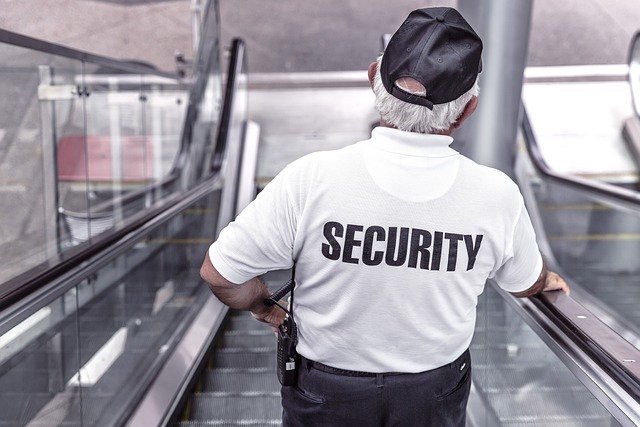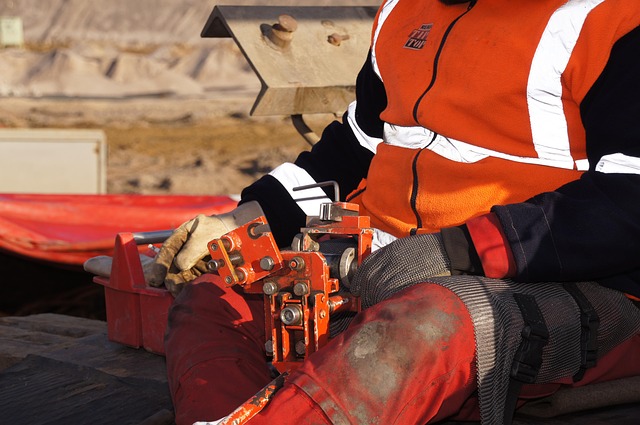TL;DR:
Background checks for security personnel are crucial for ensuring dynamic and secure security operations. These thorough screenings, including criminal records, employment history, education, and personal references, verify the trustworthiness of guards, enhancing overall safety for facilities, employees, and visitors. Compliance with industry standards through advanced technology like Verifiable Credentials (VCs) on blockchain simplifies recruitment, maintains legal integrity, and bolsters public trust in the security industry. Regular updates, random drug testing, psychological assessments, and continuous development further fortify these processes, acting as a first line of defense for premises protection. Key terms: Security guard background screening, safety personnel verification, security industry compliance, premises protection checks, safety officer credentials, security workforce screening.
In today’s world, ensuring the safety of facilities and individuals is paramount. Background checks play a crucial role in verifying the integrity and competence of security personnel, from guards to officers. This article delves into the significance of thorough background screening as a cornerstone of safety personnel verification. We explore how industry compliance standards enhance protection, uncover essential aspects of security workforce screening, and discuss best practices for effective premises protection through comprehensive checks, integrating verifiable credentials along the way.
- Understanding the Importance of Background Checks in Security
- The Role of Background Screening in Safety Personnel Verification
- How Compliance with Industry Standards Enhances Protection
- Uncovering Essential Aspects of Security Workforce Screening
- Integrating Verifiable Credentials for Reliable Safety Officers
- Best Practices for Effective Premises Protection through Checks
Understanding the Importance of Background Checks in Security

Background checks play a pivotal role in ensuring the integrity and effectiveness of security personnel. In the dynamic landscape of security management, where the safety of individuals, properties, and sensitive information is paramount, verifying the credentials and history of security guards and officers is non-negotiable. These comprehensive checks act as a robust shield against potential risks, going beyond basic qualifications to unearth crucial insights that could impact premises protection.
The process involves meticulous screening of an individual’s background, encompassing their employment history, criminal records, education, and personal references. By delving into these aspects, security industry compliance is maintained, ensuring that only qualified and trustworthy individuals are granted access to sensitive environments. This meticulous verification is the cornerstone of fostering a secure and reliable security workforce, thereby enhancing the overall safety of facilities, employees, and visitors alike.
The Role of Background Screening in Safety Personnel Verification

Background screening plays a pivotal role in ensuring qualified and trustworthy individuals are hired as security personnel. This process involves thorough verification of an applicant’s background, including their employment history, criminal record, education, and personal references. By conducting meticulous background checks, organisations can mitigate potential risks associated with hiring unqualified or untrustworthy guards. Such measures are crucial for maintaining the integrity of the security industry and upholding compliance standards.
In the realm of premises protection, background screening acts as a robust defence mechanism against potential threats. It helps to weed out candidates with malicious intent, ensuring that safety officers possess legitimate credentials and meet the required standards. This meticulous process is not just about checking boxes; it involves a comprehensive evaluation that goes beyond surface-level qualifications. Effective security guard background screening contributes significantly to creating a secure environment, fostering public trust, and safeguarding valuable assets.
How Compliance with Industry Standards Enhances Protection

Compliance with industry standards in background checks for security personnel is paramount in enhancing protection on premises. By adhering to established guidelines and protocols, organizations can ensure that their security guards meet specific criteria and possess the necessary qualifications and skills. This verification process includes thorough screening of applicants’ backgrounds, including criminal records, employment history, and personal references, to identify any potential risks or red flags.
Safety personnel verification goes beyond basic checks, involving comprehensive evaluations to assess suitability for the role. This involves scrutinizing their training certifications, licenses, and experience in relevant areas. By maintaining security industry compliance, companies can rest assured that their workforce is equipped with the knowledge and abilities required to safeguard individuals and assets effectively, contributing to a safer environment overall.
Uncovering Essential Aspects of Security Workforce Screening

Background checks for security personnel are a critical component of ensuring qualified and capable guards on your premises. These thorough screenings go beyond basic verification of identity and employment history, delving into essential aspects like criminal records, past employment experiences, and relevant certifications. By conducting comprehensive background checks, employers in the safety industry can identify potential risks, confirm the integrity of their security officers, and ultimately maintain compliance with legal requirements for premises protection.
Effective security workforce screening involves meticulous verification of credentials, including licenses, permits, and specialized training certifications. It also incorporates sensitive data analysis and cross-referencing information across multiple databases to uncover any red flags or discrepancies. This proactive approach not only safeguards the integrity of the security team but also fosters a culture of trust and accountability within the organization, ultimately bolstering overall safety measures.
Integrating Verifiable Credentials for Reliable Safety Officers

In today’s world, where security is paramount, integrating Verifiable Credentials (VCs) into background checks for security personnel has become indispensable. VCs offer a robust and efficient way to verify the credentials and qualifications of safety officers, ensuring they meet the stringent standards required in the security industry. By leveraging blockchain technology, these digital credentials provide an immutable record of an individual’s qualifications, training, and certifications, enhancing the reliability of background screening processes for security guard recruitment and retention.
This approach not only streamlines the verification process but also enhances compliance with premises protection regulations. Employers can effortlessly access up-to-date information on safety officer credentials, ensuring they remain valid and current. This level of scrutiny is vital in maintaining a competent and reliable security workforce, thereby fostering a safer environment for businesses and their assets.
Best Practices for Effective Premises Protection through Checks

Implementing robust background checks is a cornerstone of ensuring qualified security personnel. These checks go beyond basic verification to uncover potential red flags and ensure safety officers meet the industry’s stringent standards. Comprehensive screening involves verifying credentials, checking criminal records, assessing past employment history, and corroborating references. By integrating advanced technology like digital identity verification and data analytics, organizations can identify patterns and anomalies in applicants’ information, enhancing accuracy and efficiency in background checks for security personnel.
Effective premises protection necessitates a proactive approach to security industry compliance. Regular updates to screening protocols and staying abreast of legal requirements are vital. Organizations should adopt best practices such as conducting random drug testing, implementing psychological assessments, and offering continuous professional development opportunities. These measures not only bolster the capabilities of the security workforce but also foster a culture of accountability and integrity within the organization. Such rigorous screening processes serve as a first line of defense, contributing to the overall safety and security of premises.
